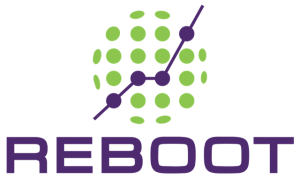The Story of an Organization
Welcome to Grafton Matters, our new blog. We are excited to share our thinking about high quality behavioral healthcare and engage in conversations that will benefit all of us. It is a chance both to articulate the Grafton point of view and hear what others are thinking and doing to improve the care we all provide.
More than 50 years ago, Grafton was created by Mrs. Ruth Birch, a concerned mother who faced a challenge. Her son, Tim had special needs and had just been sent home from school. Mrs. Birch was looking for something that most of us take granted—someone to educate her son who had a learning disability. Frustrated, she dreamed of providing Tim an education that unleashed his true potential.
Mrs. Birch began to conceive an alternative educational environment that worked for her son. It started in her kitchen, drawing in children from the surrounding community. She pioneered a strengths-based approach, revolving all subject areas around horses, a topic in which Tim had an unending interest. From her early writing:
“Each student is allowed to progress at his own rate of speed, developing confidence, self-assurance, and initiative as he builds solid foundations, as he is shown what he can do, rather than what he cannot.”
Others approached her with their own stories and challenges. Calls came in from as far away as New York. She moved her work to Questover, currently our Berryville facility. She was audacious in the best sense of the word: willing to take surprisingly bold risks to overcome the challenge before her, her son and so many others.
Mrs. Birch established a culture that pervades all aspects of our organization to this day. Over the years the organization that has become Grafton Integrated Health Network expanded into the provision of multiple levels of care, serving a variety of needs, including psychiatric residential treatment, day treatment and day schools, applied behavior analysis, outpatient psychotherapy to name a few. Consistent effort on the part of Grafton’s 700 dedicated professionals has given rise to innovations – innovations that we have begun to share with the rest of the profession, both nationwide and beyond. These innovations found their genesis in Mrs. Birch’s belief that we need to empower caregivers with tools – tools that guide day-to-day intervention and foster functional autonomy in those we serve. Two examples best embody this idea:
In 2005 at the outset of my tenure with Grafton, I challenged our care teams to reduce the use of restraint and other coercive practices, without increasing risk to themselves. The result is now called, “Ukeru,” the Japanese word for “receive.” Ukeru uses “receiving” techniques such as extraordinary blocking, good case conceptualization, and the philosophy of “comfort versus control” to truly create a therapeutic and safe environment of care.
During the past ten years Grafton has refined its use of data to inform treatment planning and support clinical decisions. Today, our Goal Mastery process provides a data-rich roadmap to support care. Embedding this methodology within the convenience of current mobile technologies will put it directly into the hands of those who can best use it: parents. We call this application REBOOT which stands for Reliable Evidence-Based Outcomes Optimization Technologies. For more information on REBOOT, read the June edition of Continuums, Grafton’s E-Newsletter. http://www.grafton.org/vol-4-issue-3-june-2013/
As all of our work moves forward, we trust Grafton Matters will facilitate open dialogue about our work and our treatment philosophy, and the current challenges that we in behavioral healthcare face both on a personal, and on a system-level. We hope that we can spur conversations from which we can all draw inspiration and ideas that will lead to better outcomes for those we serve. It’s our sincere hope that we can come together as a community of caregivers (the providers of services, and those who live with the impact of disability in their own homes every day). Together, we can overcome the myriad challenges we face today: an epidemic of autism, a healthcare system in crisis, and the need for creative community-based solutions, to name a few. Like Mrs. Birch, let’s be audacious together!